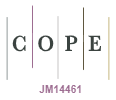Anthropophagic pedagogy in the amplification of the repertory of cultural knowledge from pedagogy undergraduate students and their profess ors
DOI:
https://doi.org/10.5585/eccos.n46.7342Keywords:
Aesthetic Education. Teacher Training. Anthropophagic Pedagogy. Artistic-Cultural Knowledge.Abstract
The text thematizes the power of an Anthropophagic Pedagogy in the initial formation of pedagogues, glimpsing the stimulation and the complexity of the repertoire of artistic-cultural and experiential knowledge of the students and their mediators of learning. This Pedagogy is understood as a foundation for deepening a diverse cultural formation in socio-political contexts, aiming to create elements for teaching, particularly in relation to the teaching of arts, a field of knowledge legally required of pedagogues. Authors such as Tardif (2007), when discussing knowledge and teacher training; Bondía (2002), regarding the knowledge of experience; Therrien (2010), when he discusses the teacher as mediator of knowledge; Pimenta (1997; 2006), when dealing with teacher training and praxis; Libâneo (2002) and Franco (2012), placing the field of Pedagogy and the pedagogue’s activity; Zeichner (2008), for bringing a complex look on reflexive teacher and its context of action; Duarte Junior (2010), when it comes to aesthetic education; Andrade (1924, 1928) and Barcelos e Silva (2008), when relating cultural anthropophagy and education, theoretically subsidize the study. As a methodological path, it is based on a theoretical and empirical study, including data from interviews developed with students of Pedagogy of a public university. The research problem is transcribed: to what extent has the university been contributing to guarantee access to artistic and cultural goods for students of the Pedagogy course? We conclude that the Anthropophagic Pedagogy constitutes a formation that aggregates educational actions of academic and cultural character, mobilizing learning that broaden theoretical and practical horizons, necessary for aesthetic education.
Downloads
Downloads
Published
How to Cite
Issue
Section
- Abstract 559
- PDF (Português (Brasil)) 404






